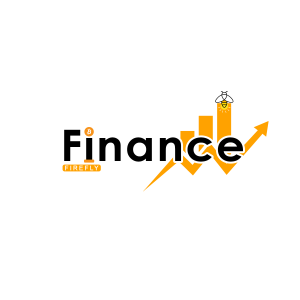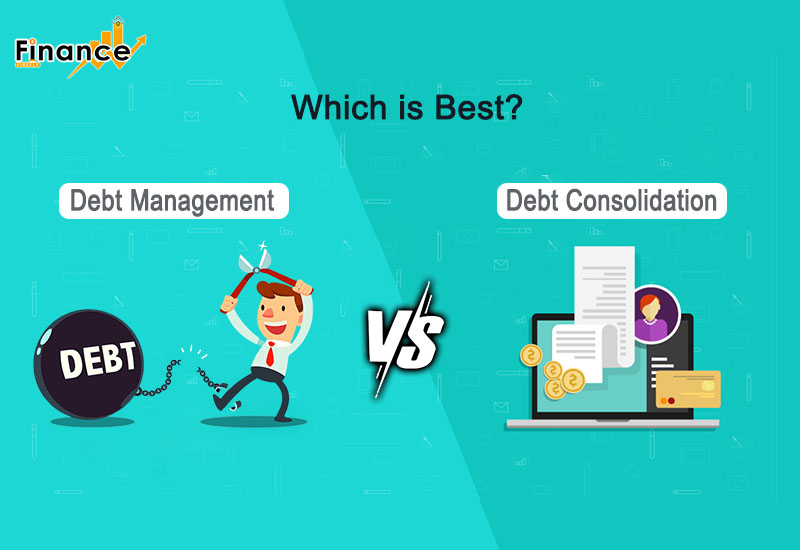As debt management and consolidation are two paths for debt relief and share a lot of common perks so the two terms create a lot of confusion in the minds of readers. As American consumers have to pay off debt in a significant amount the ongoing debate between the two approaches debt management vs debt consolidation holds significant importance.
The COVID-19 restrictions imposed a ban on consumers so the total debt dropped below $1 trillion since the year 2011. The debt increased significantly in recent years making it difficult for people to pay it off. Two of the viable approaches for financial management are debt management vs debt consolidation. They two are effective pathways for debt relief but which one is better totally depends upon your circumstances.
Table of Contents
Debt Management vs Debt Consolidation: A Quick Overview
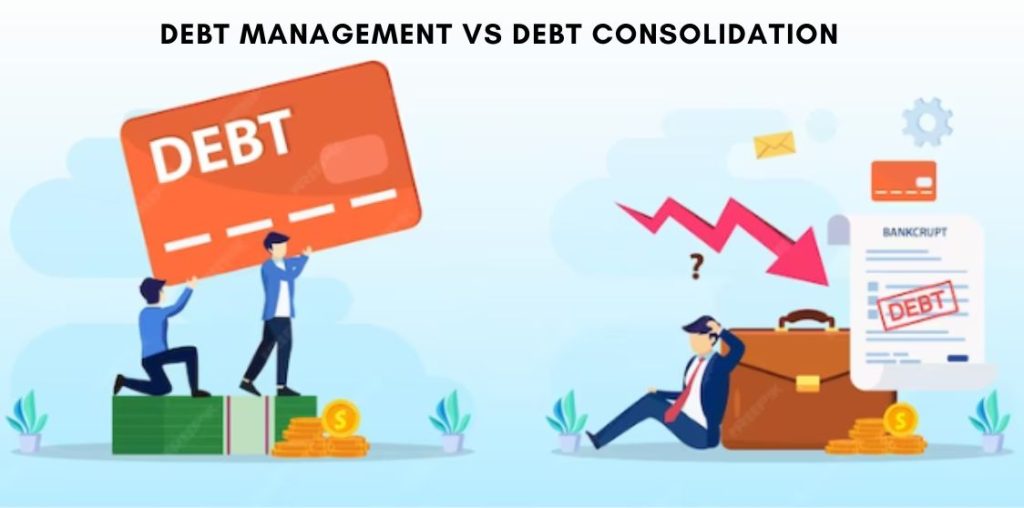
- Debt management refers to the process of rolling several credit card debts into a single monthly plan with an increased interest rate whereas debt consolidation refers to paying several debts into a single new one with potentially lower interest rates.
- When considering debt management vs debt consolidation, the key difference is that debt consolidation loans make use of new credit to tackle the previous debt whereas debt management helps to organize and execute a repayment plan
Choosing a viable Debt Relief option
There are multiple options to pay off credit card debt but the choice often comes down to the broader terms of debt management vs debt consolidation. Both of them are considered effective approaches and each of them relies on different methods to get you out of the debt. One similarity between the two terminologies is that they both require the consumer to make monthly payments.
Debt Management vs Debt Consolidation: Detailed Analysis
For you to differentiate the two approaches of financial planning, we will do a detailed analysis based on the pros and cons, interest rates, and fees on credit for debt management vs debt consolidation.
Debt Management
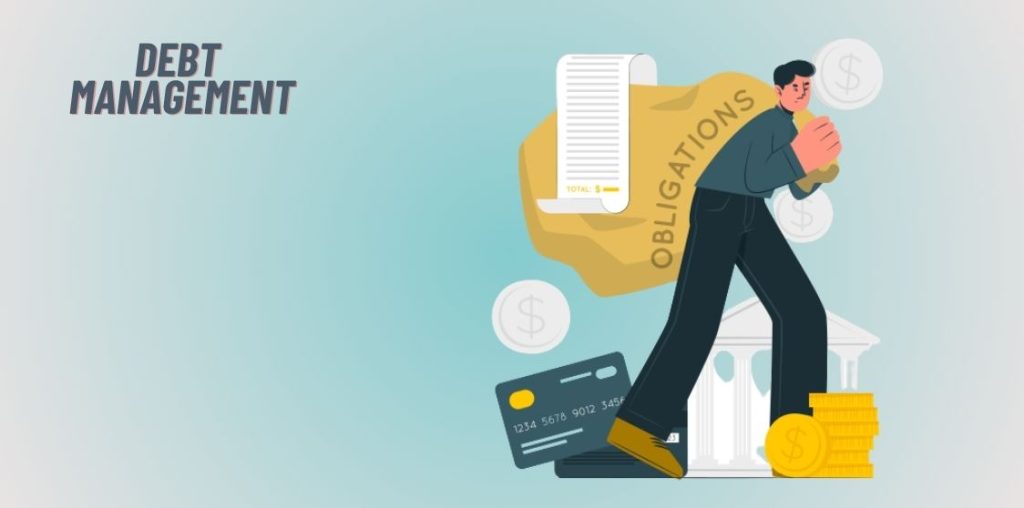
The debt management plan is effective for all those who have some sort of money left at the end of each month. It is one of the effective plans to eliminate debt with the aid of credit counseling agency. Through this approach you make monthly payments to the credit counselling agency which in turn makes payments to the creditors. The key to success to the debt management plan is that you only pay what you can afford and as your financial situation improves you can pay off debt quickly
Pros
- For the debt management plan, you don’t need to take tension of paying multiple creditor instead you make one payment to the credit counseling agency. As long as you make timely payments to the credit counseling agency, you will stay easy for the rest of the month
- As part of the debt management plan the credit counselor will try their best to negotiate a lower interest rate on your behalf. Lower interest rate means that you have to make lower monthly payments.
- If the creditor will settle on the terms and conditions with low-interest rate, you will be able to save a substantial amount of money each month.
- The debt management is not a loan therefore the consumer will be able to consolidate debts in an easy and effective manner
- For you to leverage the services of a credit counseling agency, your credit score is not the qualifying factor.
- Through the debt management plans, the consumer can gain knowledge about the tools and financial education to prevent financial troubles
- You can cancel the commitment with the agency at anytime
Cons
- In case you miss the payment, the credit counseling agency tries its best to reduce the interest rate and eliminate the charges
- For this, you have to close all your credit cards account that you use for emergency purposes
- To leverage the use of the debt management plans, you have to make consistent payment each month.
- Few creditors may not participate in the debt management plan and if this happens then the debt management plan is not the favourable choice.
Interest Rates
The credit counseling agencies work with all the creditors to set interest rates based on the credit score and the ability to pay off debt the users. The range could vary in each use case and it could be between 2-6% depending on each use case.
Fees
Though Debt management programs have a hefty fee of $75 a starting fee but later it is $30-$55 depending upon your payment. For all those who are buried under debt, this fee may seem a strain on the wallet.
Effect on the Credit
Through this program you stop using all your credit cards This can potentially reduce your credit score . But if you stop using the card and start paying the balance you can improve the score .
Debt Consolidation
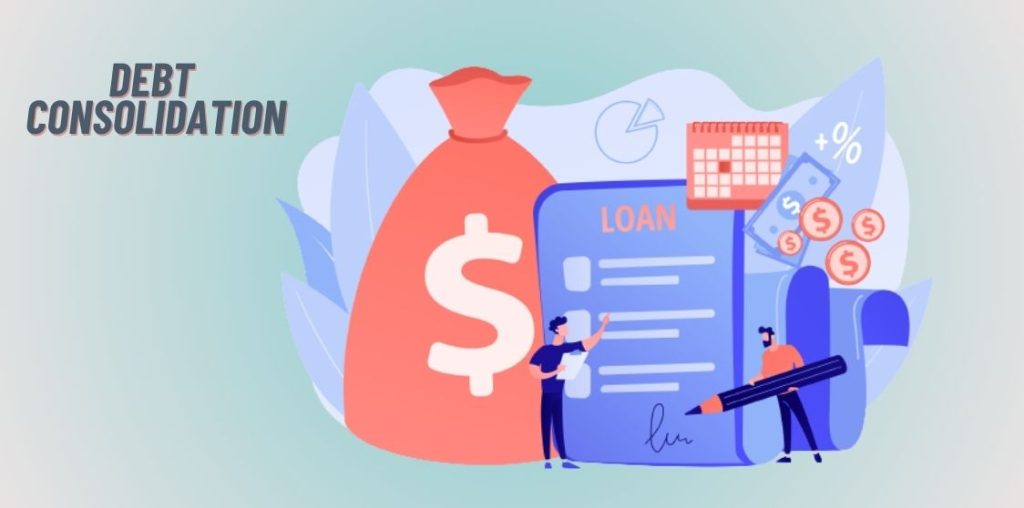
Debt consolidation refers to the process of taking out one large loan and the money being used to pay off debts that are taken out from various creditors. The lender in this case can be a credit union or online loan company that allows you to pay off debt in a duration of 2-5 years. For this, you need to have a great credit score to qualify for low-interest loans that are beneficial for you.
Pros
- When comparing debt management vs debt consolidation, debt consolidation lets you pay off debt faster, especially if you have a significant amount of debt to pay
- When you consolidate the debt you stay tension-free as you don’t have to worry about multiple payments each month
- When taking both financial strategies side by side debt management vs debt consolidation, the interest rate on a consolidation loan is lower than the current rates on the credit card
- Unlike debt management program, you can still make use of your credit cards while repaying the loan
- As through some of the debt consolidation ways , you will know exactly how much is due every month , making it easy to manage your finances
- For the long run, debt consolidation is beneficial in terms of credit boost. While debt consolidation lowers your credit score initially but since you start paying debt it will potentially improve your score.
Best ways to consolidate credit card debt
Apart from debt consolidation, there are other multiple approaches to get rid of debt. One such approach is through second mortgage or HELOC .
Cons
- Debt consolidation won’t guarantee that you won’t have to go into debt again. But to get out of it, you need to set a realistic budget for yourself
- As some debt consolidation loans comes with hefty annual fees and balance transfer fee making it difficult for the users to opt for this option.
- Depending upon the credit score you might have to pay high interest charges to the creditor
- You have to pay the creditors and manage the debt on your own which is little tiresome task to do
- If you fail to make time payments then this would potentially result in late fees and put you in list of defaulters
Interest Rates
The interest rate in case of debt consolidation is dependent on the credit score of individuals Any individual who has a credit score of 650 could easily get a loan of $15,000 for 8% interest . the interest rate even with credit score of 650 is high. And for credit score that is below 580 , the banks and creditors won’t consider it eligible for loaning.
Fees
The fees of debt consolidation varies from lender to lender. The origination fees is between the range of 1%-8% based on the type of lender. When comparing debt management vs debt consolidation, in debt consolidation you have to pay late payment fee ($15-$30), check processing fee ($7), and even an insufficient funds fee ($15)
Effect on the Credit
Debt consolidation has an overall negative impact on the credit. But if you make on-time payments to pay off debt for a duration of 6 months you would be able to improve your payment history and credit mix.
Debt Management vs Debt Consolidation : Which one is better ?
If you are determined to eliminate debt from your life then you can make use of both of financial strategies. Both of them require consistent monthly payments to get rid of debt. As every individual has its personal financial situation, the real question is to ask yourself what works best for you.
In case you cannot weigh the pros and cons of debt management vs debt consolidation, then let the certified credit counselor evaluate the situation for you. The professionals thoroughly analyze your financial situation and give you an estimate of DMP payments or debt consolidation loans in few days.
Frequently Asked Questions
What are the major problems with consolidation loans?
Debt consolidation may seem like a suitable option to get immediate relief but some of the integral issues sticking to the realistic budget remain unaddressed.
What are the negative points of debt management program?
When comparing debt management vs debt consolidation, the major downside is that DMP providers charge you a fee and some creditors might not agree on the terms set by your credit counselor.

